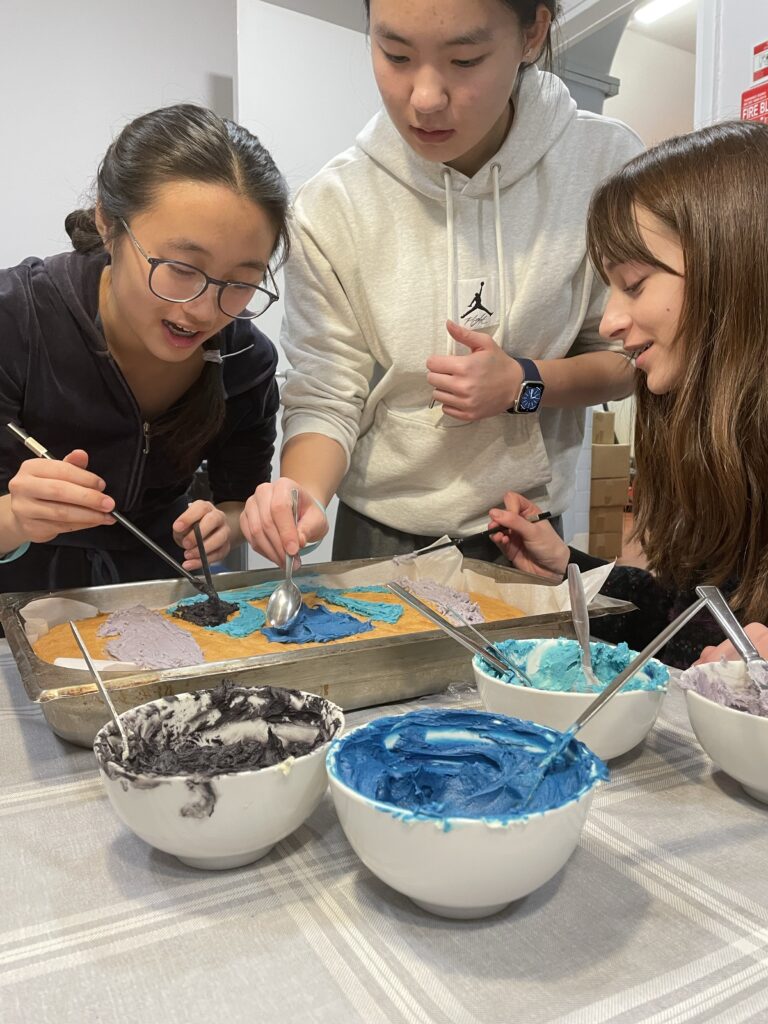The Art of Being Kind
10 February 2024 - Barry
To Barry House, kindness is the language of empathy and understanding that transcends cultural and linguistic barriers, fostering an environment where every individual feels valued, heard, and supported.
Our House motto, “Kindness, Friendliness, and Integrity,” serves not just as a slogan, but as a lived experience, a daily reminder of the ideals we strive to embody. In this place we call a ‘home away from home’, kindness is the invisible thread that connects us, a shared value that nurtures a sense of belonging and community.
We believe that acts of kindness, both big and small, have the power to transform our living spaces into a haven of warmth and inclusivity. Whether it’s a smile shared in passing, a comforting word in a moment of need, or a helping hand extended without hesitation, these gestures of kindness are the lifeblood of our House spirit.
By presenting Daisy’s thoughts below, we can effectively highlight how deeply kindness resonates with her.
The renowned German writer Johann Wolfgang von Goethe once said, “kindness is the golden chain by which society is bound together.” Kindness is often an underrated quality because it operates subtly and silently, making it easy to overlook as it is not a visible or assertive trait. However, in a society that often values competitiveness, kindness is frequently dismissed as a passive attribute. Despite claims that there is no longer a place for selflessness in our world, I can personally assure you that this is untrue.
As you enter the challenging final years of your secondary education, difficulties arise not only from academic pursuits but also from the pastoral aspects of school life. Last term, I was the head of the dorm to five younger girls, and the valuable lesson I gleaned from this experience is that exhibiting kindness can often be the most challenging undertaking in the world.
Neglecting responsibilities often seems effortless and convenient, but I posit that summoning an extraordinary amount of courage is necessary to tackle less feasible yet significantly more challenging tasks. Admittedly, it can be extraordinarily demanding to engage in a lively discussion about chloroplasts with a fervently passionate UIV, especially when the allure of restful sleep is strong. However, as you exhibit genuine interest, even in the face of reluctance and momentary discomfort, you may discover an unexpected enjoyment in the interaction. This, I believe, epitomises the beauty of human connection. True kindness, in my view, necessitates sincerity and a steadfast commitment to the well-being of individuals and their communities. Despite the battles I’ve faced during sleepless nights and evening chats with my ‘little ones’ (Daisy Day Car), I can confidently say that I have come to realise the art of being kind.
I would like to recount another recent experience involving an act of kindness. Several weeks ago, my friends and I participated in an activity where each of us was assigned another person randomly. Our task was to list three qualities we appreciated about that person. However, when the cards were read aloud, I couldn’t help but feel disappointed with the card I received. The qualities listed were superficial and basic, leading me to question the perceived extent of my potential. To my surprise, the following day, I discovered an anonymous card on my study desk. This card contained a detailed paragraph highlighting commendable and respectable attributes, indicating that the initial description did not adequately capture my personality. This experience underscored for me the profound levels of compassion and consideration inherent in acts of kindness.
I would like to take the chance and reiterate that acts of kindness are not necessarily significant or drastic, and often the acts which are overlooked are the gestures which produce the most prominent impact. I believe the art of being kind lies in the altruism which accompanies selfless actions, because kindness always finds its way back to you. Sometimes it takes a great deal of bravery to proactively plant seeds of kindness, knowing that you may not be returned immediately. I believe that many don’t recognise that kindness doesn’t need to be returned for you to feel fulfilled or satisfied. You simply need to give yourself permission to be happy for doing something good. Today I keep this card on my shelf to read whenever I need a reminder, and I shall never forget her kindness.
“What do you want to be when you grow up?” “Kind,” said the boy. – Charlie Mackesy (The Boy, the Mole, the Fox, and the Horse). Daisy (UV)

















